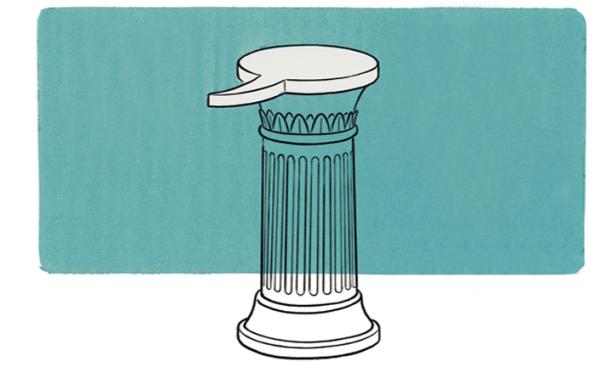
On Jan. 18, President Christopher Eisgruber ’83 released his “State of the University” letter entitled “Excellence, Inclusivity, and Free Speech.” The core of his remarks defended the course that Princeton has steered in pursuit of excellence and ever-increasing inclusivity through many decades and into these turbulent times.
“America’s leading universities are more dedicated to scholarly excellence today than at any previous point in their history, and our commitment to inclusivity is essential to that excellence,” Eisgruber asserted.
He added a telling admission: “Promoting both free speech and inclusivity is a challenging task. There are, to be sure, times when we or others will make mistakes. When we do, we should strive to correct them and become better.” He continued: “Some critics instead seize on those examples as ammunition for an ideological assault.”
Was Eisgruber hinting at mistakes Princeton has made and a desire to find ways to have honest conversations about how to get this right?
A critic of higher education who featured prominently in Eisgruber’s letter is the columnist and political commentator Fareed Zakaria, and specifically Zakaria’s six-minute video essay that went viral after airing in December on his CNN program GPS.
Zakaria argues that Americans have lost faith in elite institutions due to a shift by universities from “centers of excellence to institutions pushing political agendas.” They have neglected a core focus on academic achievement to pursue agendas “clustered around diversity and inclusion.” The original diversity mission, which was to make sure young people of all backgrounds have access to higher education and are free of discriminatory harassment, “ha[s] morphed into a dogmatic ideology and turned these universities into places where the pervasive goals are political and social engineering, not academic merit,” he said. The mushrooming DEI bureaucracies do not address the lack of political diversity, and this oversight, he argues, undermines efforts to allow for the kind of disputation that builds and sustains excellence.
The highly publicized December hearing in which House members questioned the presidents of Harvard, MIT, and the University of Pennsylvania, Zakaria said, was “the inevitable result of decades of the politicization of universities … . They should abandon this long misadventure into politics, retrain their gaze on their core strengths and rebuild their reputations as centers of research and learning.”
In his letter, Eisgruber unequivocally rejects Zakaria’s critique and disparages those who share his concerns: “[O]nly dewey-eyed nostalgia, baleful ignorance, or an ideologically-driven determination to erase history” could imagine that the pursuit of excellence is in decline.
The 26 paragraphs devoted to free speech were no doubt intended to assure the Princeton community that Eisgruber is committed to Princeton’s principles that provide the foundation of free speech and academic freedom guarantees, even when such speech is unpopular, offensive, and hateful.
Princetonians for Free Speech, for which I am an executive committee member, collaborates with faculty, students, and alumni at Princeton and at other universities to foster dialogue around these issues, and many of those people on the ground report the reality is often different than what Eisgruber espouses.
A fundamental problem is the way DEI bureaucracies can flout free speech and academic freedom principles. Prominent individuals and institutions who represent a wide range of political positions have offered thoughtful suggestions for how to change course and correct the reputational damage wrought by such practices.
Steven Pinker has proposed a much-referenced five point plan to save Harvard from itself. The “Princeton Principles for a Campus Culture of Free Inquiry” was created by faculty from Princeton and elsewhere. “A Vision for a New Future of the University of Pennsylvania” has been signed by more than 2,000 faculty, alumni, parents, and others. The University of Chicago’s new center, the Forum for Free Inquiry and Expression, was founded last year to address these disturbing trends. Heterodox Academy’s membership includes 5,662 faculty, 24 of whom are from Princeton.
Two prominent Black voices directly tackle ways to radically reconstitute the diversity and inclusion mission. One is Danielle Allen ’93, a political theorist at Harvard. In “We’ve Lost our Way on Campus. Here’s how we can find our way back,” published Dec. 10 by The Washington Post, Allen rejects the inflammatory rhetoric of “institutionalized racism” and “white supremacy” and suggests ways to “protect intellectual freedom and establish a culture of mutual respect at the same time.” And there is renowned Harvard economist Roland Fryer, in “DEI is Worth Saving from Its Excesses,” published in Jan. 22 by The Wall Street Journal. His extensive, data-driven work on education, inequality, and race jettisons objectionable DEI practices such as divisive training sessions and unequal treatment based on group identity and its stigmatizing impact, and defends those aspects of DEI that focus on developing and optimizing talent among disadvantaged people.
DEI as currently practiced is under intense scrutiny from many quarters. A course correction is underway. Can Princeton become part of the solution?
Leslie Spencer ’79 is vice-chair of Princetonians for Free Speech.
